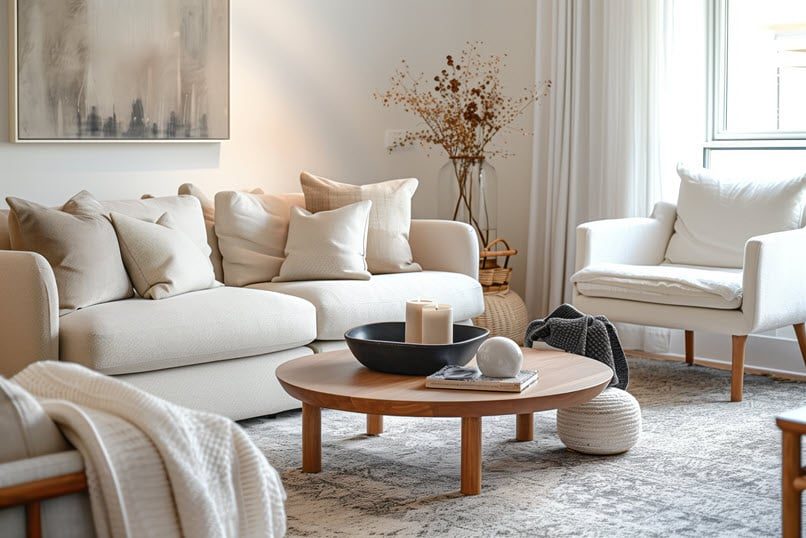A blog in support of World Mental Health Day about how ordinary people, with seemingly easy lives, can experience mental illness.
World Mental Health Day
This Saturday, 10 October is World Mental Health Day. So, this felt like a good time to tackle the subject of mental health.
Taking care of our mental health has never been so important. Coronavirus is having a huge impact on everyone’s lives and livelihoods and will leave a legacy of physical and mental illness well beyond the delivery of a vaccine.
Mental illness does not discriminate
This post isn’t a cry for help. I am well, I have nothing extraordinary to complain about (beyond the current catastrophes). But mental illness can strike anyone, just as physical illness can – even those who seem to have it easy. And it has affected me in the past.
This blog is about how mental illness can strike ordinary people living regular lives. Perhaps, like me, most of the time you feel lucky. Rationally and relatively speaking, I have had an ‘easy life’, but I have also suffered periods of ill health.
Perhaps, like me, you have not experienced a terrible trauma or life-changing event, but you have had periods of depression. And the fact that you don’t have an extraordinary story makes you feel guilty or self-indulgent when talking about your mental health.
I feel that now as I write this. But I do so in the hope that someone out there finds comfort in not being alone. It’s ok to not be ok.
My story
14 years ago, I gave birth to a beautiful, healthy son and immediately (I mean in the operating theatre) began a dizzying spiral into depression. I struggled to leave my bedroom. My new baby and I stayed in the house during an oppressive heatwave, both of us exhausted but not sleeping, just crying.
Each day I would take him for a walk to get him to sleep, and as soon as we arrived back home, the crying would start up again. I was sleep-deprived, scared and alone. Mr Maven would arrive home from work each day to the widest smile from our son, which confirmed my feelings of inadequacy.
Post-natal depression was taboo – perhaps still is. I remember trying to explain my feelings to a friend. She was confused. How could I be depressed? I had effortlessly drifted into motherhood when some of my peers were struggling to conceive. The heavy implication was that my depression was unjustified and selfish.
I learnt my lesson and didn’t discuss my pain with any other friends. Instead, I visited the GP. Her advice: “get some sleep”. Um, ok, good plan.
Taking action
Taking matters into my own hands, I found a private psychotherapist. Just thinking about that first session brings a huge lump to my throat. I poured out my heart to her, explaining my darkest thoughts, hoping she wouldn’t call social services to have my son taken away from this unfit mother.
Each week for eight weeks I returned to unload. She didn’t just listen, she also explained and validated my feelings. I was losing control of my mind because I had no control over my baby, or the chaotic and brutal birth that brought him into the world. And for someone who dined out on being the most organised person in the room, this was devastating. I needed to learn new tactics for coping with the new world order, and I needed to sleep.
Moral of the story?
You know yourself. You know if you’re not feeling well. You don’t need to justify your feelings to anyone. Get help.
Talking therapy worked for me then, but I have also taken antidepressants. I had a terrible bout of anxiety after a biopsy. The GP gave me little pills which made me so dizzy for a fortnight I thought I needed an eye test. The dizziness gave way to total numbness. I hated that empty feeling more than the anxiety so stopped taking the pills after a couple of months.
Again, during that episode, I was very selective to the people I talked to. It was small fry compared to what my nearest and dearest were going through at the time. I put on a brave face, so everyone thought I was fine.
Moral of the story?
Mental health is invisible. You might be surprised at how the seemingly resilient are silently screaming for someone to reach out to them.
I’ve also written about mental health issues related to menopause, which you can read about here. I had a eureka moment watching a BBC documentary which explained everything I’d been experiencing – crazy mood swings, crying fits and rage.
Moral of the story?
Share your experiences. If it hadn’t been for that documentary, I would have booked myself in for an unnecessary brain scan. I hope this blog will resonate with someone in the same way.
How you can help yourself
The amount of information and advice out there is completely overwhelming. Mind, the mental health charity, advises that you pick just one strategy at a time. There are some good simple tips from the NHS here, but trying to learn a new skill, taking up exercise and volunteering simultaneously will be exhausting and counterproductive.
My advice for you on this World Mental Health Day is to be kind to yourself and take a break from one thing that is causing you anxiety. What can you take a break from? Can you get help with the kids for an hour so you can go for a run or sit in a park? Can you finish work early, with no better excuse than ‘self-care’? Remove yourself from that one thing for a while and breathe.
I have taken a break from social media, known to be a cause of increased anxiety. I have barely opened Instagram for two weeks and I have so much free time! I’m feeling less judged (and less judgey). Weirdly, the world continues to spin without anyone knowing what I’m wearing today.
Take a break from the old routine
Coronavirus has made everyday feel like groundhog day with little to look forward to, so these little breaks from the routine are essential for recharging.
If taking a break is impossible, then here are some alternative strategies for you to choose from, but again, I urge you to pick just one thing. The last thing you want is to feel overwhelmed by the solutions.
It’s ok not to be ok
Ordinary people have ordinary problems and still suffer mental illness. You are not alone and if you find support you will get through this. One day at a time. I’m here if you want to talk.
Much love, Vx

The post Mental illness does not discriminate appeared first on Lifestyle Maven.






